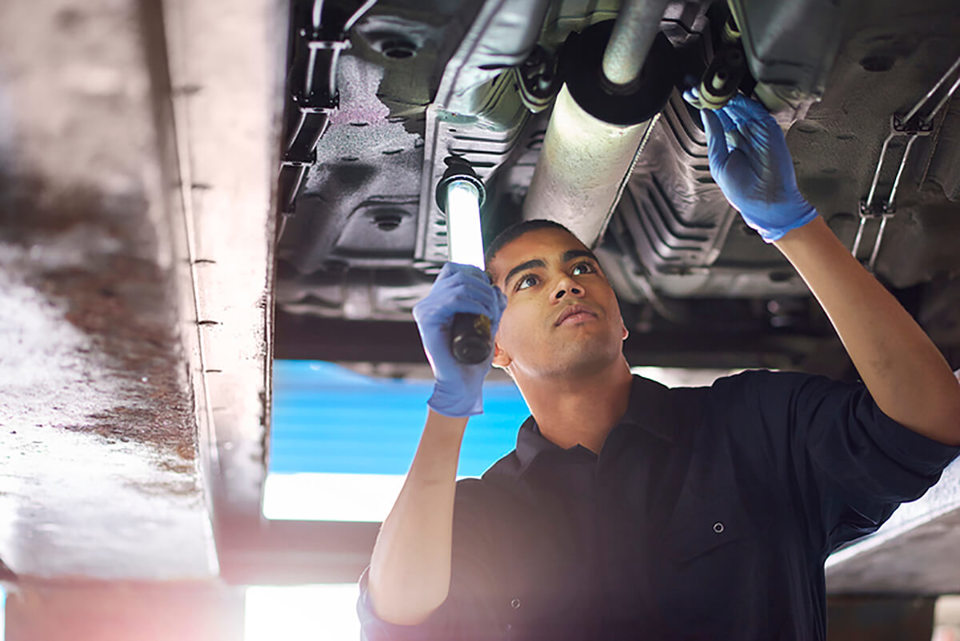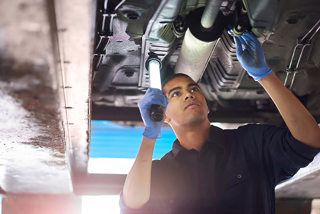The Driver and Vehicle Standards Agency (DVSA) believes its Earned Recognition scheme could become the de facto national benchmark for operator compliance, superseding the need to join alternative national or regional schemes such as FORS (Fleet Operator Recognition Scheme) and CLOCS (Construction Logistics and Community Safety).
“Different schemes in different parts of the country must be a worry for operators – it increases costs and means different standards,” said DVSA chief executive Gareth Llewellyn. “The value of Earned Recognition is it’s everywhere – it’s a national scheme. We hope that will mean fewer city/regional schemes.”
He added: “It will be the ultimate national scheme, even if others remain or disappear. We have been a safety organisation for a long time but our work on emissions is taking us into another place; for example, emissions testing could become part of Earned Recognition. It becomes something that is not so different from FORS.”
Earned Recognition went live at April’s Commercial Vehicle Show after a 12-month pilot involving more than 60 operators running more than 43,000 vehicles. They include John Lewis, BT and Arriva.
The scheme rewards companies who are most focused on ensuring their truck fleets – and their drivers – are safe at all times. Operators share their performance information with DVSA; in return, their vehicles are less likely to be stopped for roadside inspections.
Operators must pass a compliance audit, including a set of key performance indicators (KPIs), at the start of the application process. They must also have IT systems for vehicle maintenance and drivers’ hours, which will monitor the KPIs and inform DVSA every four weeks if any are missed. DVSA will also carry out periodic audits.
David Wood, DVSA compliance product manager, said: “We are encouraging operators to be in this for the right reasons. If they get found out, the repercussions would be significant.”
The key benefit for operators is to be able to go about their daily duties without the risk of being pulled over at the roadside for checks, saving them time and money. DVSA would then be able to focus its resources on targeting the worst offenders.
Consequently, Earned Recognition fleets would have a competitive advantage, which could also extend to a point of differentiation when bidding for contracts, according to Llewellyn. They can use the Earned Recognition marque on their website and other publicity materials.
Registration-plate recognition (ANPR) will play a key role in policing the scheme as it tells examiners whether or not an operator is on it. This information is replicated on a smartphone app.
“Examiners can see that and send the vehicle on its way, which minimises disruption,” Llewellyn said.
By the end of the first year, he hopes to have 10% of the HGV and PSV parc on the scheme; currently it has 4%.
DVSA targeted a range of operators during the pilot to ensure the scheme was fit for purpose for all fleet sizes and profiles.
It is also mindful of the role of light commercial vehicles, issuing a warning to operators running both vans and trucks. Wood said: “It is no good being an exemplar in HGV but not in their van fleet.”
Should inspectors spot issues with vehicles operated by an Earned Recognition fleet, the company will be reviewed. DVSA will speak to its transport manager to find out what has gone wrong and why, and to check its intervention policies. The fleet will not be automatically kicked off the scheme.
“It’s a different relationship where we can have that conversation to identify the problems,” said Wood.
“If it’s a performance issue, for example a deterioration of KPIs or a roadside stop, we will look to help the operator with an action plan to rectify. If it’s a conduct issue, for example an operator submitting doctored information, it is more serious and will be treated differently.”
Llewellyn added: “The integrity of the scheme matters to us and to the people that are part of it. In our five-year strategy across our business, our objective is to inform, educate and advise the public of good and bad (operators). Earned Recognition is part of the journey.”
DVSA is now in talks with the Department for Environment, Food and Rural Affairs (Defra) and Department for Transport (DfT) about how low emission zone enforcement can be weaved into the standard.






















Login to comment
Comments
No comments have been made yet.